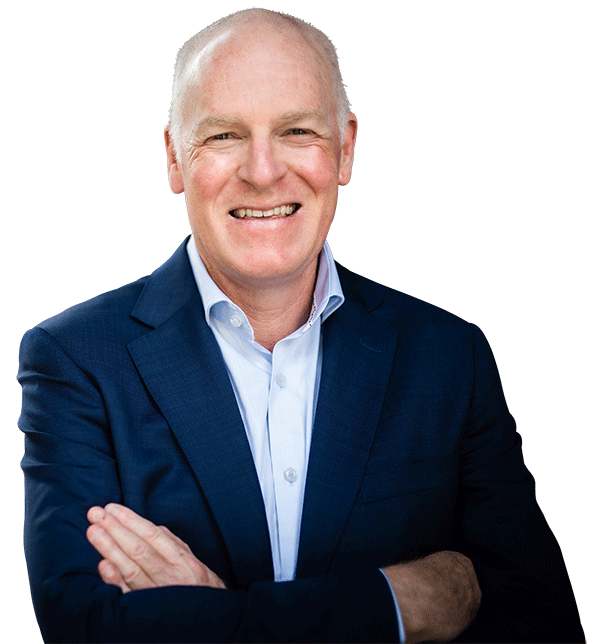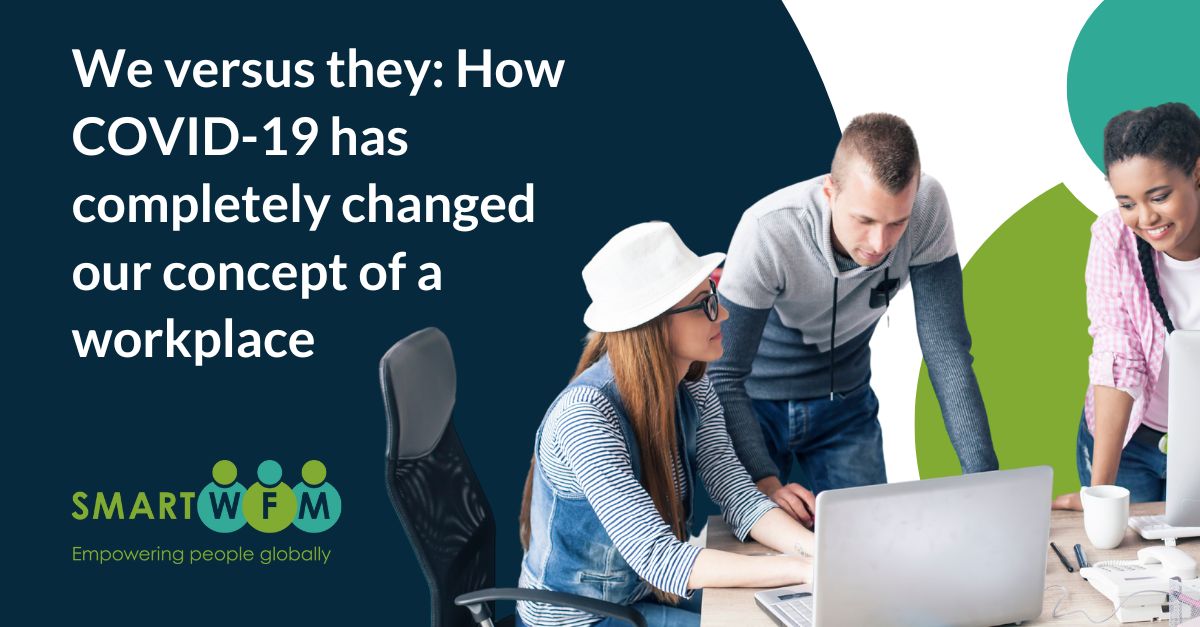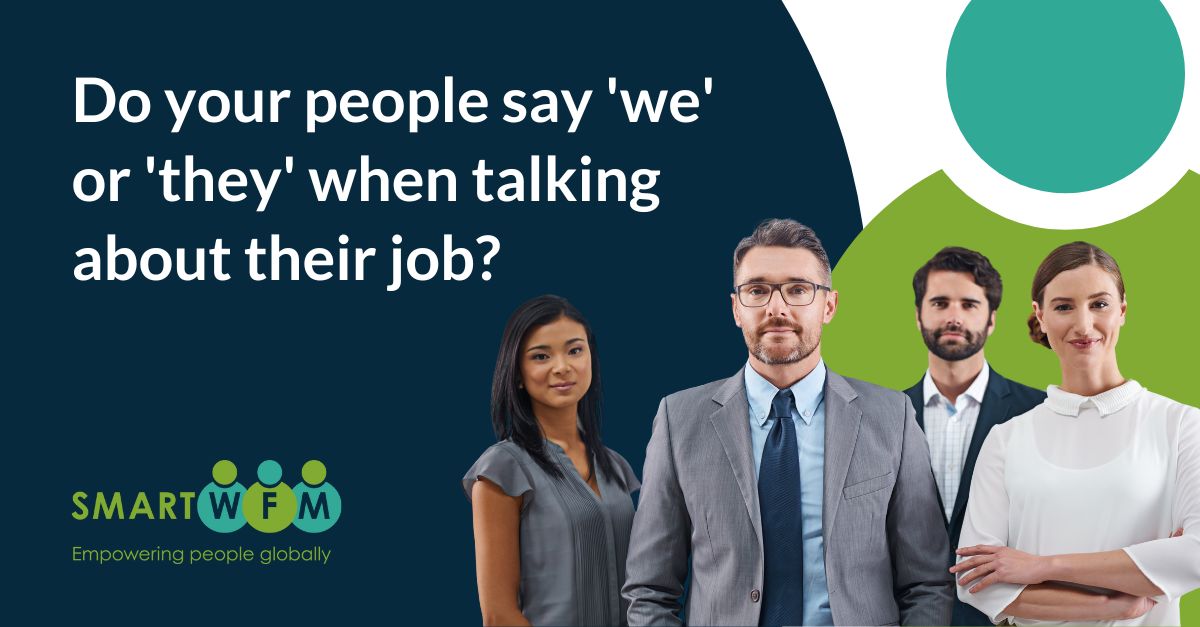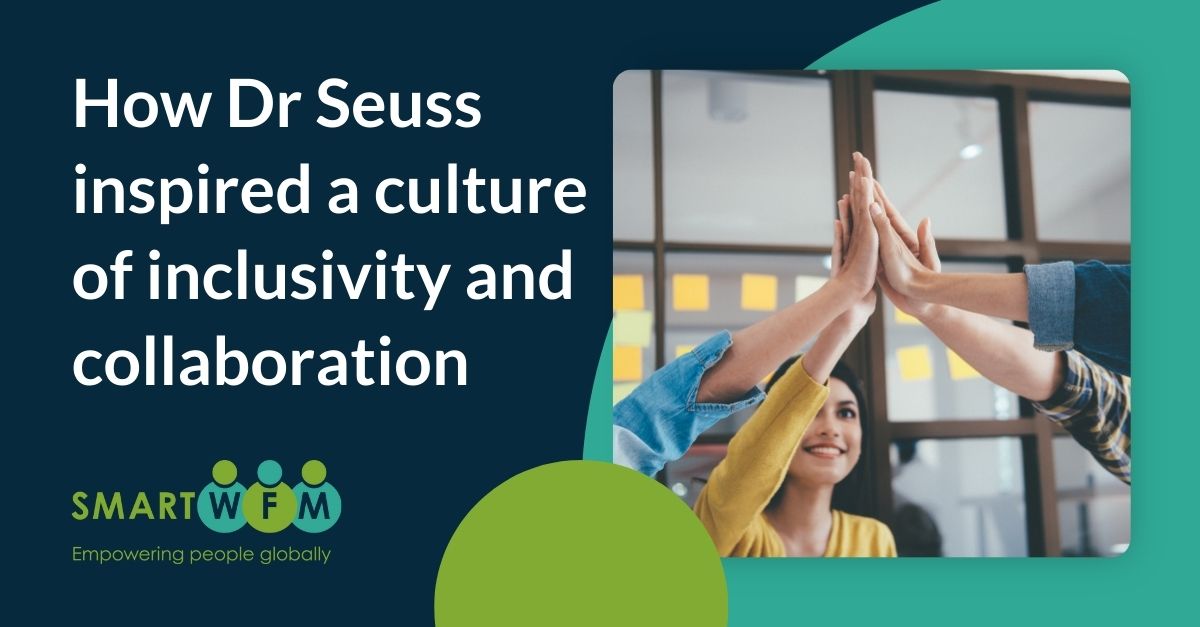Do your people say 'we' or 'they' when talking about their job?
In a world where traditional office cultures are relics of the past, Jarrod McGrath talks about the evolving dynamics of workplace environments. The...
3 min read
 Jarrod McGrath
July 21, 2021
Jarrod McGrath
July 21, 2021

In this blog, Jarrod discusses the evolving dynamics of the workplace, emphasising that traditional perks like corner offices and financial compensation are no longer sufficient. In the post-COVID era, people seek flexibility, social interaction, collaboration, and a deeper sense of purpose in their jobs.
What makes people tick and stick around in the workplace has changed. Gone are the days of the corner office in the ivory tower, with the expense account and secretary that brings a fresh Danish and macchiato just the way you like it every morning.
These kinds of features and the culture they represent are relics of a bygone era. Even financial compensation itself — the only rule of thumb consideration in outdated but still heavily relied upon economic theory — is just one element of what people seek from their workplaces in 2021. People demand flexibility, social interaction, collaboration, and overall deeper meaning from their jobs.
We’ve been pushed to completely rethink what the workplace even is. It’s not a physical place anymore; it’s an environment in which people do their work and feel a certain way about it. Employers’ first consideration now is to tune into that and create a feedback loop about those feelings, and the second is to take ownership of those feelings in how the business runs.
When everyone from IT vendors to recruiters are spruiking the importance of flexibility, and Australian favourites like Atlassian tell their knowledge-worker staff they can work from anywhere, forever, you’d be forgiven for thinking successful future leaders will be the ones who enshrine flexibility into the workplace.
Wrong. That’s a prerequisite; it’s the modern equivalent of businesses providing an internet connection. It doesn’t really break any rules not to do it, but the expectation is baked in and resolute. In tandem, staff who must remain on site for the bulk of their work — e.g., aged care workers, tradespersons — expect to be able to set their availability flexibly and potentially complete admin work on the move or at home.
The COVID shakedown on how we work has raised the ability to work where, and largely when we want, to that status. Employers need to look closer at deeper, harder-to-measure characteristics to build longer-term desire for people to stick around. As Einstein put it: “Not everything that counts can be counted, and not everything that can be counted counts”.
One of the key areas leaders need to build up is trust and transparency. Trust is relative — you might trust an organisation to compensate you, but in a world where the gap in wealth distribution between those who work and those who own the work and assets is widening, you might not trust it to fairly compensate you.
Trust extends to diversity and inclusion — it’s not just about inviting the right mix to the party, but including their dance in the organisational culture. What are your peoples’ passions and do you care enough to weave them into the fabric of the organisation?
Trust includes wellbeing — is it being looked after? With the World Health Organisation (WHO) recently revealing the number of deaths from heart disease due to working long hours increased by 42%, and from stroke by 19%, I’m inclined to think many leaders are failing here.
Technology trust will be a major factor too, as artificial intelligence (AI) continues to cause genuine and justified fear over job security. Are you planning to use technology to ‘free up’ staff to do more as most organisations at least say they will? Are you communicating with your staff about your tech plans, and their potential concerns about them? That must come into the fold.
It’s the remit of many HR teams across Australia to conduct engagement surveys across their teams, but many do so with little thought, no follow up, or not at all, negating the point or any meaningful results from the activity.
But there are simple, independent ways to temperature check how your people are doing on an ongoing basis. For example, the eNPS (Employee Net Promoter Score) asks how likely are you to recommend our product and services to clients, new team members, your family and friends? It’s the cousin of the better-known Net Promoter Score (NPS) which asks customers whether they’d recommend the organisation’s product/service.
Companies with a high eNPS have shown to perform better on absenteeism, turnover, and profitability, so the business benefits stack up too.
Anecdotally, there are other ways to tell. How do your people speak about your company when they discuss it around the barbie or dinner table? To their hairdresser or anyone else where the topic of work comes up. While not scientific, ‘we’ implies they feel like they’re part of a team. ‘They’ implies they’re outside of it, with their passions and skills not part of where the company is going.
This is a good time for leaders to rethink and transform. The world just leapfrogged years of transformation in the space of one. What better time to re-acknowledge that people are at the centre of everything we do, and make real steps to address that.
Originally published by SmartCompany
Jarrod McGrath, July 21, 2021

In a world where traditional office cultures are relics of the past, Jarrod McGrath talks about the evolving dynamics of workplace environments. The...

Delighted to share my thoughts on creating an inclusive and collaborative work culture, as featured on HRD NZ. Discover our journey at Smart WFM...
.jpg)
Explore Jarrod's analysis on global workforce evolution, first published on People Matters. This piece discusses digital readiness's pivotal role,...